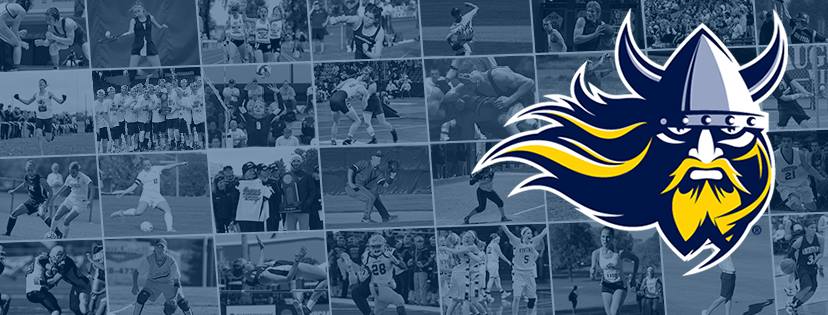Augustana adds mental health support group for athletes

In response to the growing need for support, Augustana will start an athletes-only mental health support group.
Mariah Mogck, the mental health and wellness specialist, has been holding meetings with the sports teams on campus to discuss possible support systems for athletes struggling with their mental health.
The uncertain times caused by the pandemic have led to a variety of mental health issues among athletes. According to a survey done by the NCAA, over a third of student-athletes reported experiencing sleep difficulties, more than a quarter reported feeling sadness and a sense of loss and one in 12 reported feeling so depressed that they found it difficult to function.
Athletes are facing burn-out from a season with no games. The NCAA found that mental health rates in student-athletes are reported two times higher than in pre-COVID times.
“It became very monotonous practicing without games last year. This year we were fortunate enough to be able to play games,” sophomore soccer player Lily Petersen said. “It’s still extremely demanding and everything, but it’s a little bit better because you were practicing for something. You weren’t just going through the motions.”
The intense weekly schedule that athletes follow doesn’t help.
“We have practice Tuesday, Wednesday and Thursday. Then we have games Friday and then practice again on Saturday — and then games on Sunday. Then we lift twice a week on Tuesday and Wednesday,” Petersen said. “And we usually have one to two film sessions for about an hour each — some team, some individual — with the coach.”
Petersen can also expect to attend 15 hours of classes a week and complete an average of two hours of homework per day.
Volleyball coach Jennifer Jacobs said coaches are aware of the intensity of this schedule and the grit it takes to commit.
“Most of our players are in strenuous majors that require copious amounts of homework, plus the demands of being on a very high-level D2 team, plus much work on top of that,” she said. “It’s life though. Coaches are just as swamped as players — so it’s on all of us to work together to support each other through our day-to-day lives.”
According to Jacobs, coaches share a close relationship with students because of the time commitment. Consequently, it is important that they notice players’ “off” moments and direct them toward, or provide them with, the necessary resources.
In the meetings held by Mogck, she said participants discussed the resources that are already available for students, and that can be found on the emotional well-being page of the Augustana website. She said the main point of discussion so far is the upcoming mental health group for athletes only.
“There was an ask for something specific to be for student-athletes, so we’re trying it out to see how it goes,” Mogck said.
Coaches will not be a part of the group but will encourage their athletes to attend.
As a coach, Jacobs feels a responsibility to the athletes under her care and encourages all of her players to use the resources on and off campus.
“Mental health is tied deeply to performance on and off the field or court,” Jacobs said.
According to The Sport Journal, college student-athletes are a high-risk group that reports “higher levels of anxiety and depression when compared to the general college student population.”
The NCAA lists the following as the most common psychiatric disorders that challenge student-athletes: “anxiety disorders, mood disorders, personality disorders, attention deficit hyperactivity disorder, eating disorders, body dysmorphic disorder, adjustment disorders, substance use disorders, impulse control disorders and psychosomatic illnesses.”
In this new group, students and counselors will be encouraged to discuss any of the listed disorders or any other struggles that athletes face. The coaches hope these meetings will give athletes a place of solidarity. Petersen said she hopes they will not only create camaraderie, but also decrease the amount of uncertainty athletes feel and provide a safe space for open conversations about mental health, physical health and everything in between.
Mogck said students should reach out to her if they would like to meet. To schedule a meeting, students should email Mariah.Mogck@augie.edu or visit the student affairs suite in the Edith Mortenson Center to see if a drop-in appointment is available. Students can learn more about the mental health meetings from Mogck, coaches or staff in the student affairs suite.
SEE NEXT: The importance of mental health prioritization in athletics



